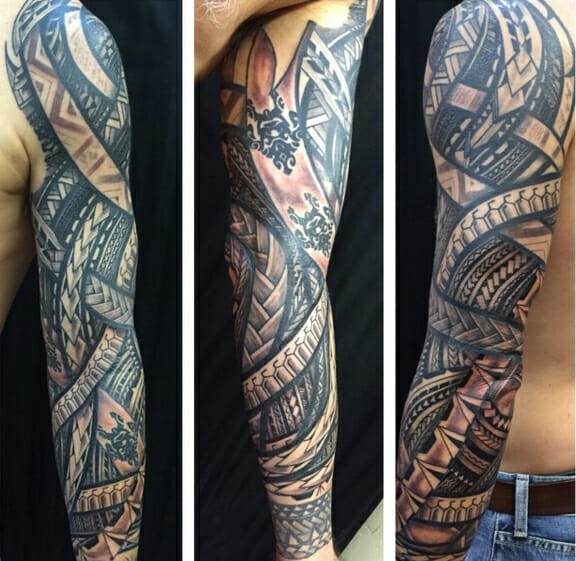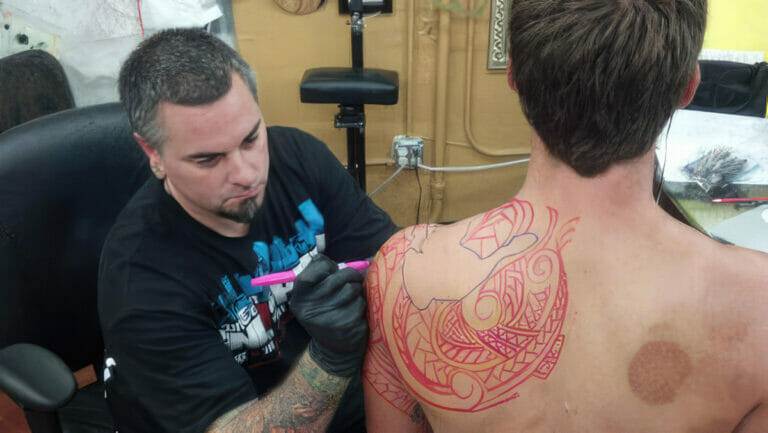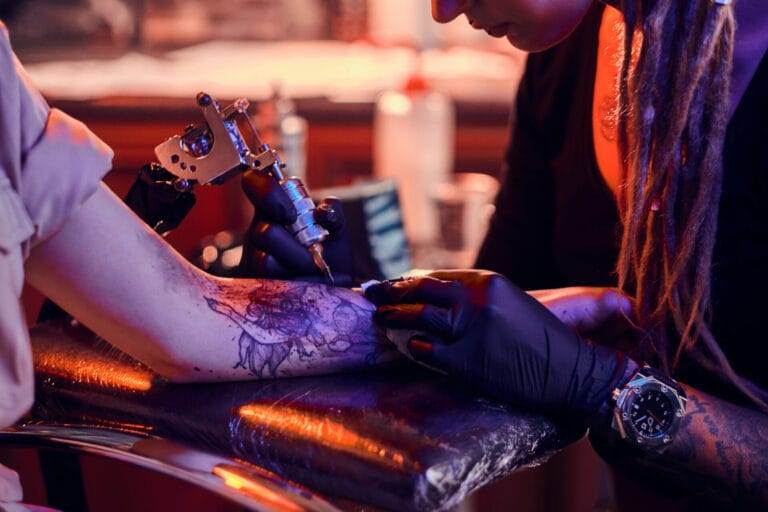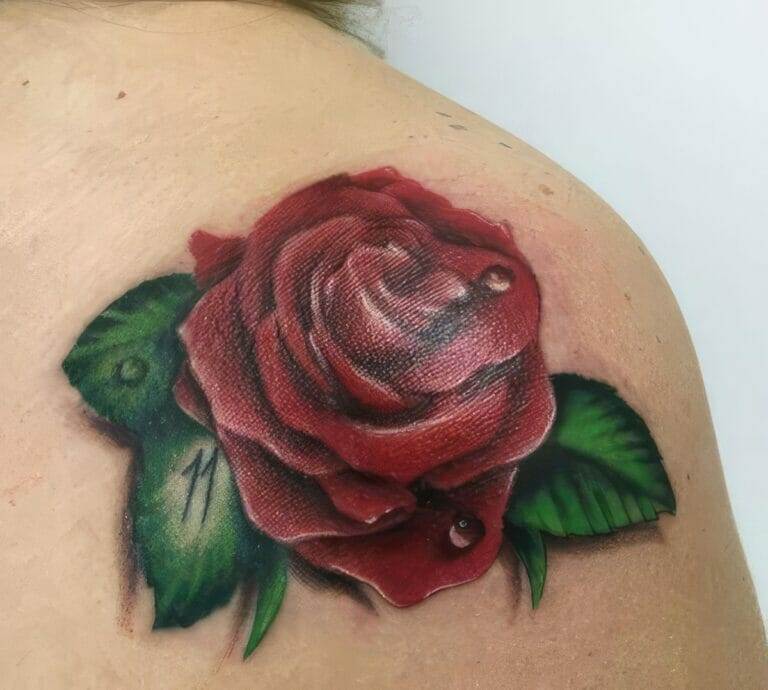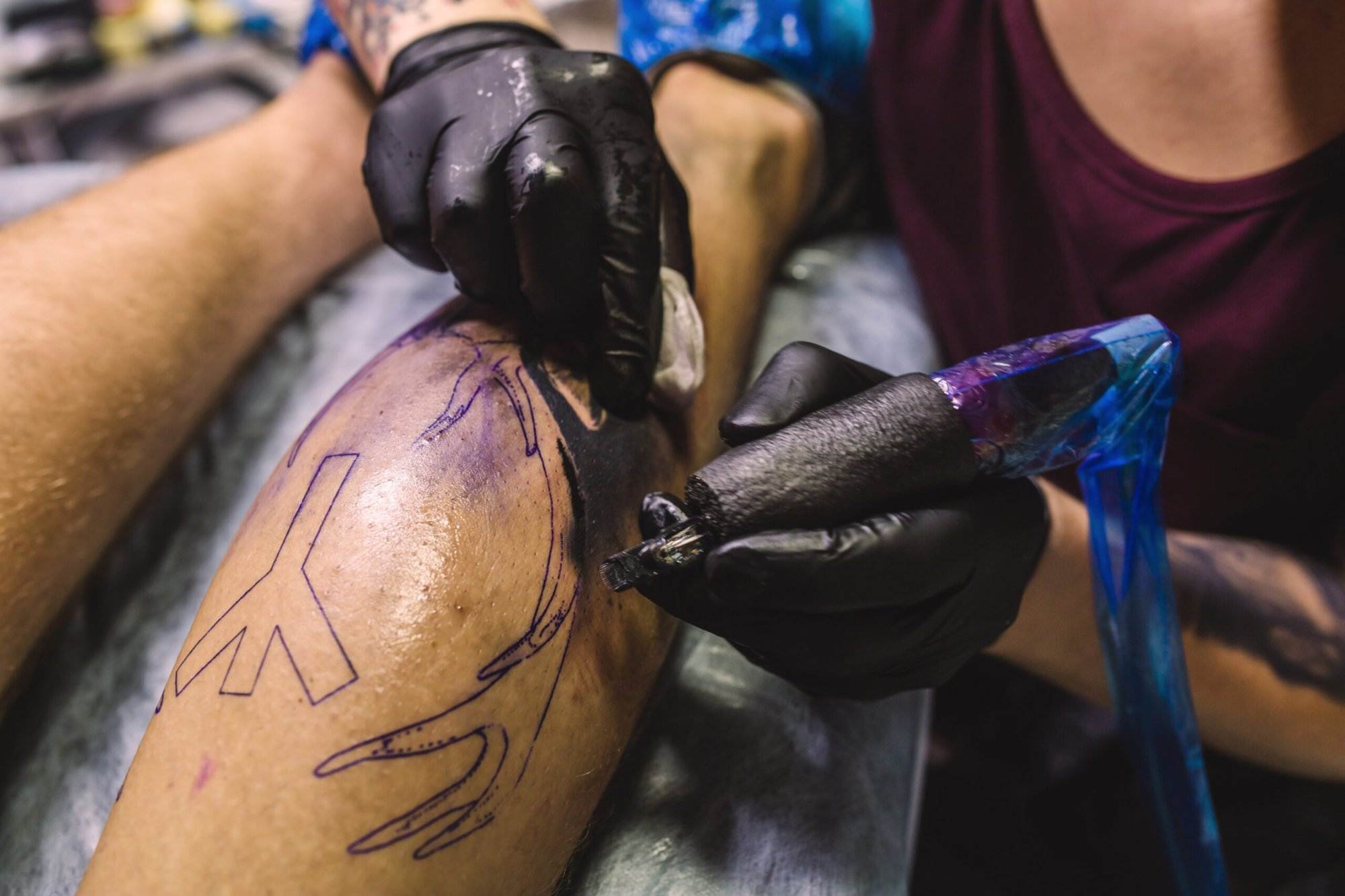
Importance of Proper Tattoo Aftercare
When it comes to tattoo aftercare, understanding the nuances of maintaining a fresh ink design is crucial for its longevity and vibrancy. One of the primary aspects of this maintenance is ensuring proper moisture and protection from environmental factors. In this section, we’ll explore two vital components: keeping the tattoo moisturized and protecting it from sun exposure.
Keeping the Tattoo Moisturized
Moisturizing is an essential step in the tattoo aftercare process. A well-hydrated tattoo not only looks better but also heals more effectively. Here’s why it’s important:
- Promotes Healing: Fresh tattoos are essentially open wounds. Keeping the area moisturized helps in faster healing and reduces the risk of scabbing.
- Preserves Vibrancy: Moisturized skin retains color better. This is crucial because dried-out skin can lead to faded ink or a blotchy appearance over time.
To keep your tattoo hydrated effectively, consider the following tips:
- Use Fragrance-Free Moisturizers: Opt for products specifically designed for tattoo aftercare or fragrance-free lotion. These are less likely to irritate your new ink.
- Apply Regularly: Moisturize your tattoo at least 2-3 times a day during the healing process. Even after it has healed, maintaining hydration will extend the life of your tattoo.
- Avoid Occlusive Products: While vaseline may seem like an option, it can trap moisture and bacteria instead of letting your skin breathe.
By focusing on keeping your tattoo moisturized, you significantly improve its healing process and longevity.
Protecting the Tattoo from Sun Exposure
Another critical aspect of tattoo aftercare is shielding the tattoo from harmful UV rays. Excessive sun exposure can cause fading and even injury to the skin, compromising the tattoo’s aesthetics. Here’s how to ensure your ink stays protected:
- Use Sunscreen: Once your tattoo has healed (generally after about two weeks), apply a high SPF sunscreen whenever you’re out in the sun. Look for a broad-spectrum sunscreen that offers UVA and UVB protection.
- Wear Clothing: If the tattoo is in a location that can be covered, opt for loose-fitting clothing to shield it from direct sunlight. Fabrics with UV protection can offer an additional layer of safety.
- Avoid Tanning Beds: Tanning beds expose your skin to concentrated UVA and UVB rays. It’s best to avoid them altogether, especially for fresh tattoos.
In conclusion, proper aftercare is pivotal for maintaining the integrity of a tattoo. By keeping your tattoo moisturized and protected from sun exposure, you ensure that your artwork remains as vivid as the day it was inked. This attention to detail not only enhances the overall appearance but also promotes healthy skin, allowing you to enjoy your tattoo for years to come.
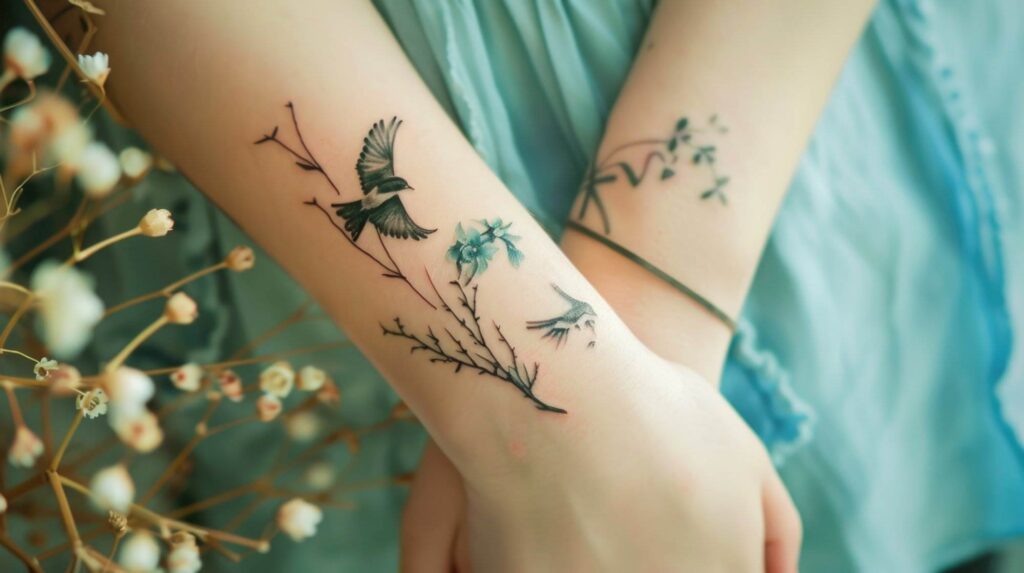
Choosing the Right Products for Tattoo Maintenance
As crucial as proper aftercare techniques are, the products you choose to support your tattoo maintenance can make a significant difference in the healing process and overall vibrancy of your ink. In this section, we will explore the importance of understanding the tattoo healing process and the role of recommended lotions and ointments in tattoo aftercare.
Understanding Tattoo Healing Process
Every tattoo undergoes a healing process that typically lasts between 2 to 4 weeks, depending on various factors such as skin type, tattoo size, and aftercare practices. Understanding this process is integral to choosing the right products:
- Initial Healing (Days 1-6): This phase is when the tattoo is essentially an open wound. During this stage, it’s critical to keep the area clean and moisturized. A light application of ointment or cream will help prevent scabbing and keep the skin supple.
- Peeling Stage (Days 7-14): Around a week after getting the tattoo, you may notice peeling or flaking. This is a natural part of the healing process as the outer layers of skin regenerate. It’s essential to continue moisturizing and avoid picking at the peeling skin to prevent complications.
- Final Healing (Weeks 2-4): By this stage, the tattoo becomes less sensitive and starts to look more vibrant. Consistent hydration is still key, but you can begin using lighter lotion as the tattoo fully matures.
By familiarizing yourself with these stages, you can better appreciate the importance of selecting suitable products to match your tattoo’s needs throughout its healing journey.
Using Recommended Lotions and Ointments
When it comes to tattoo aftercare, the market offers a plethora of products designed for various skin types and preferences. Choosing the right ones can optimize both the healing process and the final appearance of your tattoo. Here’s what to look for:
- Tattoo-Specific Products: Brands that specialize in tattoo care often offer lotions and ointments tailored specifically for the needs of fresh ink. These products are generally fragrance-free and formulated with nourishing ingredients to prevent irritation.
- Natural Ingredients: Look for products with natural moisturizers like aloe vera, shea butter, or coconut oil. These are gentle on the skin and can help soothe irritation while keeping the tattoo hydrated.
- Avoid Harsh Chemicals: Steer clear of products containing alcohol, fragrances, or dyes, as these can irritate the tattoo and hinder healing.
Here’s a simple checklist when choosing products:
- Opt for fragrance-free and natural-based lotions or ointments.
- Confirm that the product is designated for tattoo aftercare.
- Ensure that it is free of common irritants and harsh chemicals.
In summary, selecting the right products for tattoo maintenance can greatly affect the tattoo’s longevity, colors, and clarity. By understanding the healing process and utilizing recommended lotions and ointments, one can maintain their tattoo in pristine condition, showcasing its beauty for years to come. This focused approach to aftercare will not only support skin health but also ensure your tattoo remains a lasting piece of art.
Practicing Good Hygiene Habits for Tattoo Care
As with any open wound, practicing good hygiene is an absolute necessity in the tattoo aftercare process. Ensuring that your tattoo heals beautifully involves a series of simple yet effective hygiene habits. This section will delve into the importance of properly washing and drying your tattoo, as well as the critical need for avoiding scratching or picking at the healing skin.
Properly Washing and Drying the Tattoo
Proper cleaning is fundamental to the health of your tattoo. It not only helps remove any bacteria or unwanted particles but also promotes healing. Here’s a step-by-step guide on how to effectively wash and dry your tattoo:
- Use Clean Hands: Before touching your tattoo, always wash your hands thoroughly with soap and water to eliminate any germs. Cleanliness is your first line of defense.
- Gentle Cleansing: Use a mild and fragrance-free soap. Products that are too harsh can irritate the skin. Lather the soap with your hands and gently cleanse the tattoo with a light touch. Avoid scrubbing; instead, dab and wipe softly around the area.
- Rinse with Lukewarm Water: After cleaning the tattoo, rinse it gently under lukewarm water. Avoid using hot or cold water, as extreme temperatures can irritate the skin.
- Pat Dry with a Clean Towel: Once the tattoo is clean, use a clean, soft towel or let it air dry. Avoid rubbing the area, as this can lead to irritation.
- Moisturize Immediately: After drying, apply a thin layer of the recommended lotion or ointment to keep the skin hydrated.
By incorporating these steps into your tattoo aftercare routine, you can help prevent infections and promote a smoother healing process.
Avoiding Scratching or Picking at the Tattoo
It can be incredibly tempting to scratch or pick at a healing tattoo, especially as the skin begins to peel or feel itchy. However, resisting this urge is crucial for preserving the integrity of your ink. Here’s why:
- Prevents Scabbing: Scratching can lead to scabs forming, which can ultimately affect how your tattoo looks once healed. Scabs can pull the ink out, resulting in uneven coloring.
- Reduces Risk of Infection: Picking can introduce dirt and bacteria into the healing skin, increasing the risk of skin infections. This not only jeopardizes the health of your tattoo but also can lead to painful complications.
- Promotes Healthy Skin Regeneration: Allow your skin to heal naturally without interference. Scabs and dry skin will eventually fall away, revealing a vibrant tattoo underneath.
To help curb the urge to scratch or pick, consider these tips:
- Keep Your Tattoo Moisturized: A well-hydrated tattoo is less likely to feel itchy.
- Wear Loose Clothing: Allowing your skin to breathe can prevent unnecessary irritation.
- Distract Yourself: Engage in activities that keep your hands busy, such as reading or crafting.
In conclusion, good hygiene habits are essential for tattoo care. Properly washing and drying your tattoo can significantly enhance its healing journey, while avoiding scratching or picking preserves its beauty. Taking these steps will not only make your tattoo look amazing but will also contribute to your overall skin health. Prioritizing hygiene will ultimately ensure that your investment in body art remains as stunning as the day it was inked.
Staying Hydrated and Eating a Balanced Diet for Healthy Skin
Beyond proper aftercare techniques, maintaining healthy skin through hydration and nutrition is crucial for ensuring that your tattoo remains vibrant and attractive. In this section, we will examine the importance of drinking sufficient water daily and incorporating vitamins and nutrients into your diet to support skin health.
Drinking Sufficient Water Daily
Water plays a vital role in skin health and overall well-being. Staying adequately hydrated is essential, especially after getting a tattoo, as it significantly influences the healing process. Here’s why drinking water is beneficial:
- Promotes Skin Elasticity: Hydrated skin is firmer and more elastic, which is important for healing. This can help keep your tattoo looking fresh and intact, avoiding issues like dry skin that may lead to fading.
- Flushes Out Toxins: Proper hydration helps your body eliminate toxins more efficiently, reducing the chances of skin irritation and other health issues that could impact your tattoo.
- Supports Overall Health: Good hydration supports vital bodily functions, including circulation and metabolism, ensuring that your skin gets the nutrients it needs to heal effectively.
Aiming for at least 8-10 glasses of water a day is generally a good guideline, but this number can vary based on individual factors like activity level and climate. Consider infusing your water with slices of lemon, cucumbers, or mint for a refreshing twist, making it easier to reach your hydration goals.
Incorporating Vitamins and Nutrients for Skin Health
A balanced diet rich in vitamins and nutrients can significantly enhance your skin’s appearance and assist in the tattoo healing process. Here are some key vitamins and nutrients to consider:
- Vitamin C: Vital for collagen production, this antioxidant helps promote skin healing and protects against free radicals. Include citrus fruits, strawberries, and leafy greens in your daily meals.
- Vitamin E: Known for its skin-nourishing properties, vitamin E helps to maintain skin health and may reduce the appearance of scars. Nuts, seeds, and green leafy vegetables are excellent sources.
- Omega-3 Fatty Acids: These healthy fats can help to maintain skin moisture and elasticity, essential for vibrant tattoos. Sources include fatty fish like salmon, walnuts, and flaxseeds.
- Zinc: Crucial for skin repair and inflammation regulation, zinc can be found in foods such as legumes, nuts, whole grains, and dairy products.
- Protein: Adequate protein intake supports skin healing and regeneration, so don’t forget to include lean meats, fish, beans, and lentils in your diet.
To ensure you’re getting these nutrients, consider maintaining a colorful plate filled with various fruits, vegetables, whole grains, and proteins. Meal prepping can help include a diverse range of foods, making it easier to meet your dietary needs. In summary, staying hydrated and eating a balanced diet are essential practices for maintaining healthy skin, which in turn promotes better healing and longevity for your tattoos. By drinking sufficient water daily and incorporating a mix of vitamins and nutrients into your meals, you not only enhance your skin’s appearance but also ensure that your artwork continues to shine as brightly as the day it was inked. Taking these steps will contribute significantly to your overall well-being and the enduring vibrancy of your body art.
Regularly Visiting a Tattoo Artist for Touch-Ups and Maintenance
Ensuring your tattoo remains as vibrant and stunning as the day it was inked often requires regular care. One of the best ways to achieve this longevity is through ongoing maintenance, which includes scheduling touch-up appointments and consulting with your tattoo artist for specific care recommendations. Maintaining a good relationship with your tattoo artist is key for ensuring that your artwork remains in pristine condition.
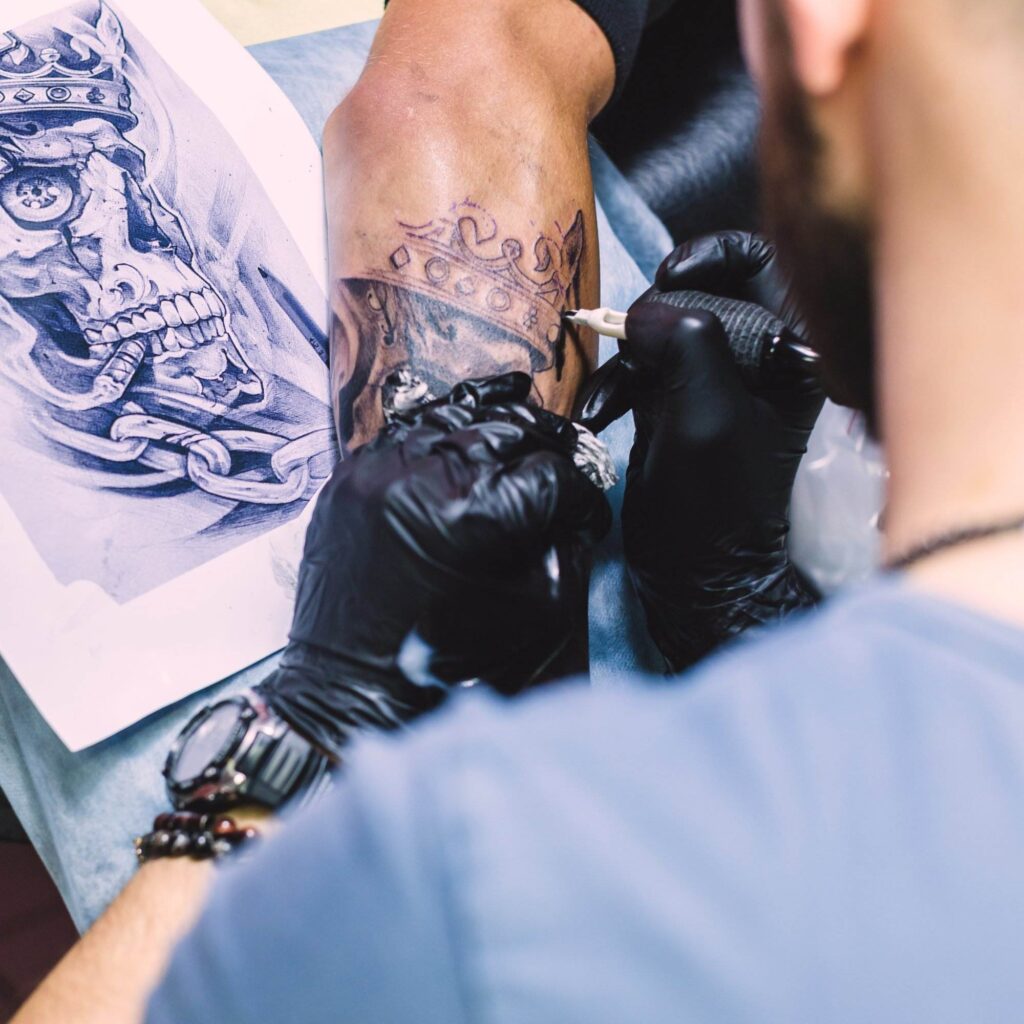
Scheduling Touch-Up Appointments
Touch-ups are an important part of maintaining your tattoo, especially as time passes and skin naturally undergoes changes. It’s not uncommon for tattoos to fade due to various factors such as sun exposure, skin type, or even just the passage of time. Here’s why scheduling those touch-up appointments makes a lot of sense:
- Enhances Vibrancy: Over time, even the best tattoos can lose some of their initial luster. A touch-up can restore colors, redefine outlines, and refresh the overall appearance of your artwork, keeping it looking sharp and vibrant.
- Corrects Imperfections: Sometimes, you may notice small areas where the ink hasn’t held up as well as expected. Touch-ups provide an opportunity to correct these imperfections, ensuring that your tattoo looks flawless.
- Personalized Timing: Depending on your specific tattoo, touch-ups may be recommended every 1-5 years. Discuss with your tattoo artist the best timetable for your specific piece, and schedule appointments accordingly.
Remember, regular touch-ups not only benefit the appearance of your tattoo but also reinforce your commitment to caring for your body art.
Consulting with Tattoo Artist for Care Recommendations
It’s not just about touch-ups; consulting with your tattoo artist can provide you with tailored advice on how to care for your specific tattoo. Here’s what to consider when aligning with your artist:
- Skin Type Considerations: Your tattoo artist can give personalized insights based on your skin type. For example, dry or oily skin may require different aftercare products.
- Specific Environment Factors: Depending on your occupation or hobbies, you may need specialized care recommendations. If you spend a lot of time outdoors or frequently swim, your tattoo artist can suggest products and practices that will protect your tattoo.
- Customized Aftercare Products: Tattoo artists often have preferred brands or types of products that they recommend based on their experience. They can guide you toward items that are well-tested for skin sensitivity and efficacy.
- Follow-Up Evaluations: Your tattoo artist can perform follow-ups to ensure your tattoo is healing well and address any concerns you might have.
In summary, regularly visiting your tattoo artist for touch-ups and consultations plays a vital role in maintaining the integrity and beauty of your artwork. Scheduling touch-up appointments will enhance the vibrancy and address imperfections, while ongoing consultations will offer tailored care recommendations specific to your tattoo and skin type. A proactive approach not only ensures a beautiful tattoo but also fosters a lasting relationship with your artist. This dedication will ensure your tattoo continues to be a cherished piece of art for years to come.





